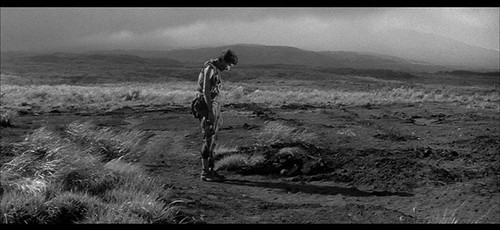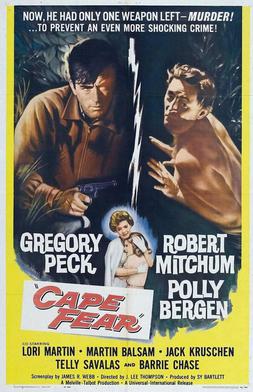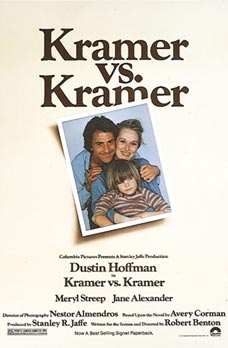 Pretty much everyone knows who Michael Bay is by now, right? If you don't, you should probably get out from that rock you are sleeping under. And to a lesser degree, people know or at least have heard of directors like Michael Mann and Sam Peckinpah? In a sort of odd hybrid mix of all three directors, Italian director Enzo Castellari has left his mark on the action genre whether you know it or not with a nice mix of story, character, style and crazy action.
Pretty much everyone knows who Michael Bay is by now, right? If you don't, you should probably get out from that rock you are sleeping under. And to a lesser degree, people know or at least have heard of directors like Michael Mann and Sam Peckinpah? In a sort of odd hybrid mix of all three directors, Italian director Enzo Castellari has left his mark on the action genre whether you know it or not with a nice mix of story, character, style and crazy action.Two of those movies, The Big Racket which is rated as his best at IMDB for whatever that's worth and The Heroin Busters, were the latest in my Netflix queue. I've seen a handful of Castellari's other movies and enjoyed them across the board. The stories tend to be pretty basic like something you'd see in an old B-movie or pulp fiction novels. Nothing groundbreaking but always entertaining. An anti-hero is typically thrust into a situation where he must save the day sometimes at a high cost as he rebels against his superiors and sometimes society in general. Of the two, I liked 'Racket' more so I'll cover that more in depth.
Both movies have Italian star Fabio Testi in the lead, both parts being in law enforcement in one way or another. I've always been aware of Testi and could have picked him out of a lineup if need be, but these were the first two movies I'd actually seen of him. He comes across well as the rebellious anti-hero. It can be hard judging performances that are dubbed into English, and often not very well, but Testi is a strong physical presence with roles that require that above all else. Acting be damned!
In 'Racket,' Testi plays Inspector Nico Palmieri, an Italian police officer trying to put away some underworld characters for intimidating and blackmailing business owners for 'protection.' If the owners don't comply, they're in for it as this little gang rapes, murders and loots their way into power. But for Palmieri, the work is frustrating because no one will testify against these hoods and therefore no charges can be presented. It's as the case continues that Nico deserves there's more to this enterprise than he thought as the different factions of the underworld plan to unite.
Could it be too late though? Nico may have pushed the limits of what he can do as a police officer and is thrown over the force. With nothing or no one holding him back, the former inspector puts together a team of vigilantes, all with their own personal reasons for revenge, to help him take out the leaders of the underworld, the 'big racket' of the title. Joining Nico are Pepe (Vincent Gardenia with an odd, unnecessary dubbing), a small-time crook with a history, Luigi (Renzo Palmer), a father who's daughter was raped by the hoods, Giani (Orso Maria Guerrini), a champion skeet shooter who helped Nico in the spur of the moment and paid for later, Mazzarelli (Glauco Onorato), a mafioso with a grudge, and Doringo (Romano Puppo), a hired killer.
The story unfolds slowly as we realize what the sadistic baddies are capable of. At first, it appears they're breaking and entering and using good old-fashioned intimidation, but they do much, much worse. By that point, you're fully on the vigilantes side and rooting for them to off everyone involved. Movies where citizens take the law into their own hands sure sounds appealing sometimes. Castellari lives up to his precedent with the finale, a shootout in an empty factory as Nico and Co. attempt to ambush the underworld heads. The director always seemed to find unique locations for his shootouts, adding an eerie spectacle to the gunfight.
And like most directors, Castellari leaves his personal stamp on these movies with some actors returning for many of the director's movies including head baddie Joshua Sinclair who was in 'Heroin' and 'Racket.' His shooting style is always consistent with some unique POV shots and quick-cutting to counter some of the slow motion in the shootouts. If Peckinpah opened the door on slow-motion violence, Castellari kicked it wide open. And if there was any doubt these were movies straight out of the 1970s, the scores are always a good clue with the De Angelis brothers in 'Racket' and alt rock band Goblin in 'Heroin.' Both scores have a synthesiser sound heavy on guitars that really gets your blood going.
As for Heroin Busters, I enjoyed it but just not as much. The story has Testi playing an undercover cop trying to bust a drug ring that seems to have connections at all the corners of the world. It takes a while to develop and is somewhat confusing until then, but all is forgiven with the last half hour, a running chase/shootout with motorcycles, a construction site and a vacant subway all ending up in some Italian ruins. David Hemmings stars as an Interpol agent working with Testi with much of the supporting cast from 'Racket' here too, including Sinclair and Puppo.
In reviewing these movies, I go back to my reliable line 'a movie doesn't have to deliver a message to be good.' Castellari revels in that, making high quality B-movies with great action scenes, anti-heroes you root for and villians you love to hate, and overall just a good time. I've been watching the Blue Underground DVDs and highly recommend them if you're looking to watch and catch up.
----Trailers----
The Big Racket (1976): *** 1/2 /****
The Heroin Busters (1977) ***/****













